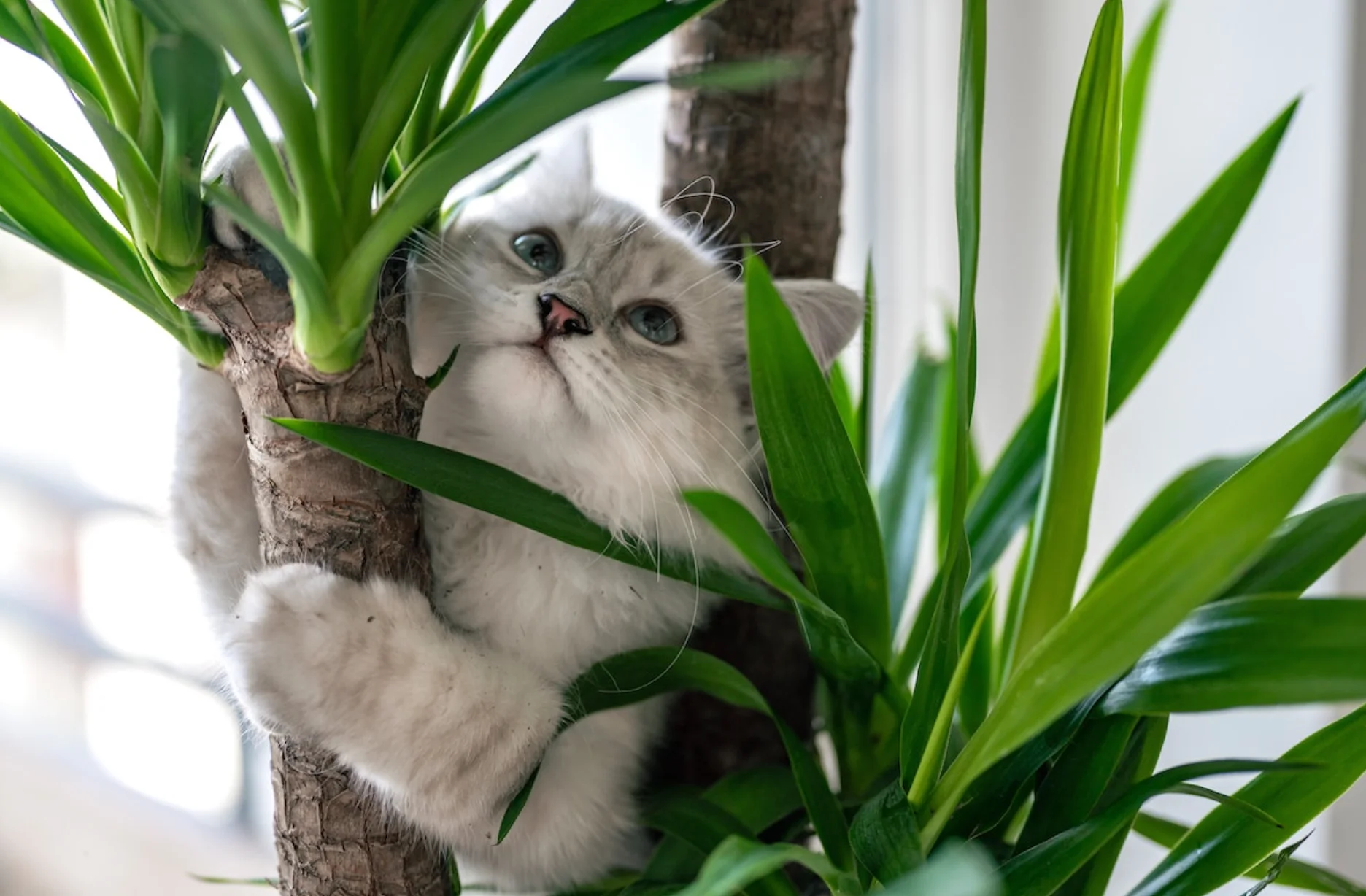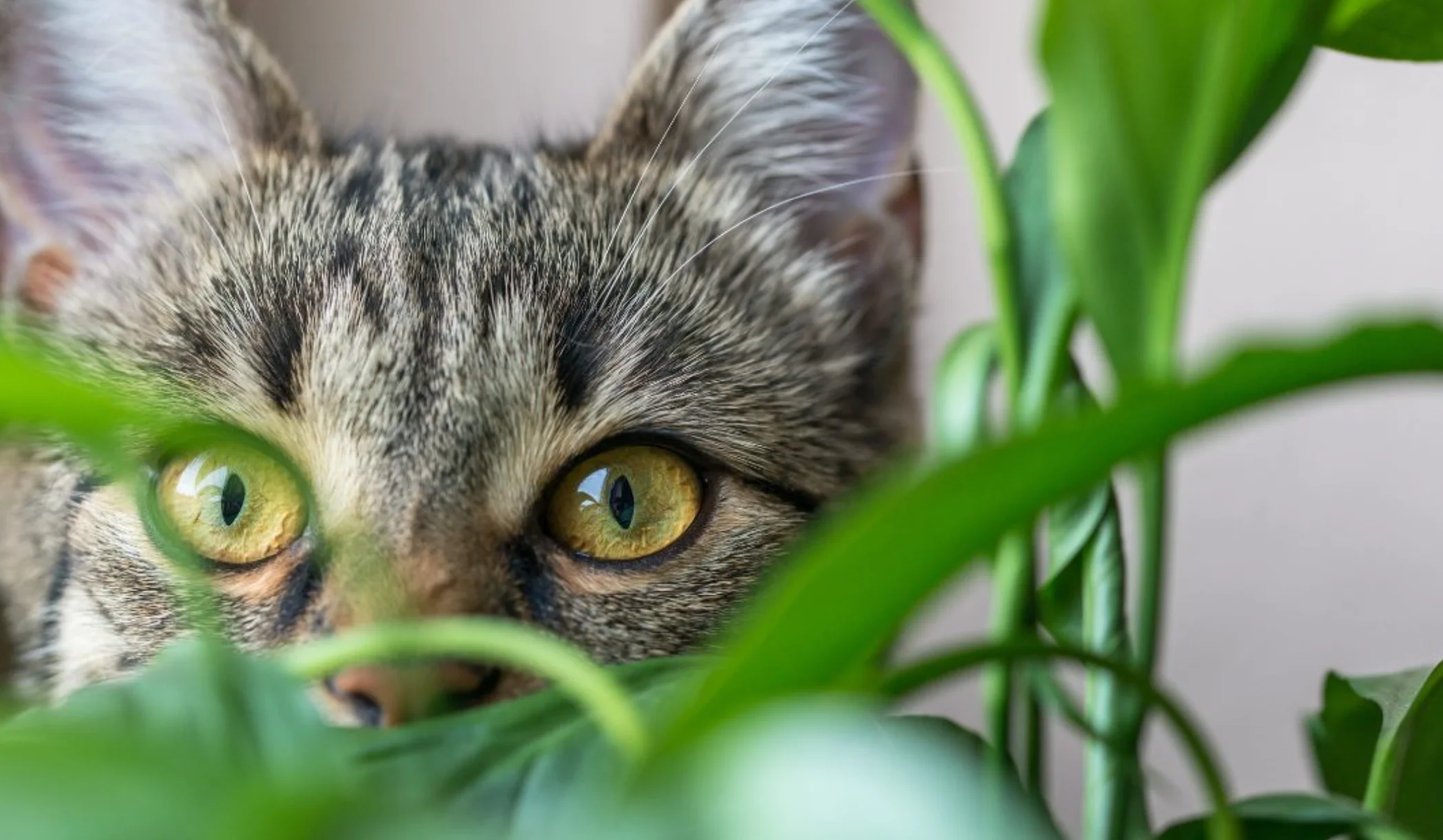
Are peace lilies toxic to cats?
peace lilies
Mildly, the peace lilies are toxic to cats. Fortunately, the compounds are non-toxic as those of true lilies. If something is wrong with your cat then call your vet immediately, as she wouldn’t survive the ordeal.
Avoid her eating true lilies or even drinking the water from the vase containing the cut lilies of such type. The toxicity related to this plant is less, however, the true toxic level is very harmful. Read all the instructions of the peace lily and what instructions to avoid if such an issue happens.

Symptoms of Poisoning
Following are the major symptoms according to the Pet Poisoning Helpline if your cat consumes parts of commonly grown species of peace lily plant.
- Oral pain (stomach pain)
- Pawing at the mouth (scratching as well)
- Vomiting (Continuously)
- Drooling
- Decreased appetite
If your feline chews on the foliage such symptoms may occur. The crystals of the calcium oxalate are like microscopic spears which attract your feline, which is one of the major reasons for these symptoms. Including the gums and tongue of your cat, these plants penetrate the tissues, down to the throat and esophagus. The peace lilies cause intense burning to cats.
You may notice the painful tone of your cat due to intense pain and drooling. It makes it difficult to breathe and causes the upper airway to swell possibly. When peace lilies are the culprit, the upper symptoms are rare.
How to Treat Cats Poisoned by Peace Lilies
If your cat had eaten the peace lilies then the good news is that the pain and discomfort will go away on their own (In just a few seconds).
Give some chilled lactose-free milk/yogurt to your feline which can help to soothe the irritation. But note that too much lactose can cause diarrhea in your feline. Lactose is intolerant in most adult animals. You can use milk or dairy products for a week and must avoid, if possible, regular dairy products. Identification can be a key to the proper treatment as there are many different species of plants that may be toxic to cats. Must take a cutting of peace lily, if you bring your cat to the vet. Even you can take a photo using your phone to help the vet including diagnosis.
Tips for Identifying a Peace Lily
It is important to note where peace lilies are placed in your home. Many people did not notice and bring the plants just because of their pretty look and attractive fragrance. Remember without knowing the cause and property of plants you are going to get your plant in danger.
Peace lilies contain the white flowers standing erect. It contains shiny emerald-green color. The normal height of this plant is about 3 feet. Normally, the most peaceful lily plant has emerald-green leaves but some contain slight tinges of the cream which is located in the center of the leaves. So, remember that it is very important to look out for which is peace lily and which is not.
Tips for preventing cats from eating peace lilies
The major and easiest technique to avoid peace lilies to your cats is by avoiding having the plants. Moreover, you must check out the peace lilies that are away from the access of your little feline.
- Cats dislike the coffee scent and citrus disgusts them so just adding a coffee grind with the orange peel to the soil will be very helpful in keeping away your cat.
- If you want to keep your cat from digging in it, add gravel to your soil of plants.
- As cats don’t like the smell of citrus, rosemary, or lavender, these plants can be placed closer to the peace lilies.
- While you are with your feline take a spritzer of water close by to spray your cat. It will help avoid your cat to eat peace lilies.
- If you have a dog and such breeds then spraying with water is very helpful to avoid eating peace lilies.
Note that all the factors are to keep away your feline but make sure that the peace lilies are away from your feline. We hope there will be best results appear if you hide peace lilies from your cat.
Will Peace Lily Hurt Cats?
The needle-like substance found in peace lilies is called calcium oxalate which is stored in bundles referred to as raphides, and raphides are toxic to cats. When the cat bites into the leaves or through ingestion of pollen, which can damage the body cells of your cats. As we mentioned above the symptoms like difficulty in swallowing, and vomiting is different symptoms.
Some Safe Plants for your kitty
There are a lot of plants that are safe for cats but few are toxic to cats. Areca palm, Boston fern, and money tree (common in every home) are non-toxic to cats. A safe category includes friendship plants, Africa violet, Bromeliad, polar palm, bird’s nest fern, etc.
However, all plants are considered safe and non-toxic to cats by the ASPCA. But remember your feline must feel discomfort if it ingests too much plant. House cats have some particular diets and their digestive system is not efficient if it had processed a large number of plants.
For your information, to energize your feline smell and eat them catnip is commonly used to energize cats. But if cats eat too much catnip they must also have to face vomiting and diarrhea.
Different plants to avoid keeping in your Home
If you have a feline then you must have to avoid the following plants coming inside your come:
Tulips: Tulips can cause drooling, central nervous system depression, cardiac issues, loss of appetite including convulsion, etc. to your cat.
True Lilies: The most dangerous substance for your cat is true lilies. Which belongs to the Lilium family. Many homeowners clip the flowers for indoor presentations but often the lilies are grown outdoors.
Sago Palm: Sago seeds contain highly toxic substances for your cat. But the plant can cause vomiting, nausea, kidney, failure, depression, seizures, etc.
Conclusion
Decorating your home with plants is very satisfying but not special as compared to your feline. However, it will be very challenging to keep away your cat to eat plants, with so many plants. Just keep the deadly species out of the house which allows you to secure your feline from harm. If a sudden accident appears then contact to doctor immediately.
if you have any questions Are peace lilies toxic to cats?




